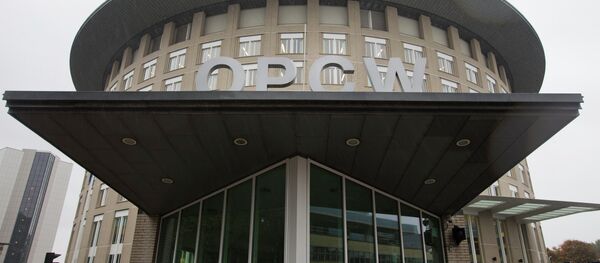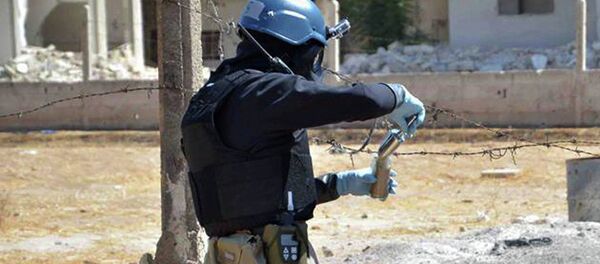The site, Rootclaim, uses a mathematics-based fraud-detection system often used by small business to remove human bias and discern the veracity of news. According to their study, there is a 92.3 percent chance that the chemical-weapons attack attributed to the administration of President Bashar Al-Assad was actually conducted by rebels opposing the Syrian president.
After graphic footage surfaced of the aftermath of a 2013 sarin gas attack in Damascus that left hundreds dead, US President Barack Obama attempted unsuccessfully to authorize an airstrike without Congressional approval, saying at the time, "I believe I have the authority to carry out this military action without specific congressional authorization."
Obama had warned Assad that using chemical weapons would trigger a military response from Washington, saying at a 2012 press conference, "We have been very clear to the Assad regime, but also to other players on the ground, that a red line for us is we start seeing a whole bunch of chemical weapons moving around or being utilized."
Rootclaim deduced, "The likelihood of the Syrian government carrying out an attack using low-quality sarin, from near opposition territory, using munitions which are not part of their chemical program, and in a manner that seriously risks regime stability, was found to be very low," and adding, "The likelihood that the opposition would carry an attack under those parameters is much higher, once they are known to have sarin."
The site does not claim that their findings are conclusive, but rather makes its assessment based on indicators that, taken alone, do not have significant evidentiary value. Washington maintains that the Assad government is to blame for the gas attacks, but it is still not clear who the culprits actually are.
Congress opposed the airstrike and it never occurred, with legislators including Rep. Alan Grayson (D-FL) accusing the Obama administration of doctoring intelligence to point the blame at Assad as a pretext for intervening in the Syrian Civil War.
The Tel-Aviv-based was created by Aviv Cohen and Saar Wilf, two experts in online fraud-detection who formerly worked at PayPal. Wilf told US News,”We’re not claiming anything, all we’re claiming is that using mathematical probabilistic tools is better than relying on human intuition,” adding that, "We [have] found a model that we are very certain is much better than any human methods of analyzing complex issues. The big question is, how will the world react to it?"
Cohen explained that, "Our focus is on taking very complex, typically controversial issues where you have lots of evidence in different directions, sometimes conflicting evidence, evidence with different reliabilities – where us humans, because of all kinds of cognitive flaws, just aren't able to deal with so much information – and coming up with the right conclusion."




